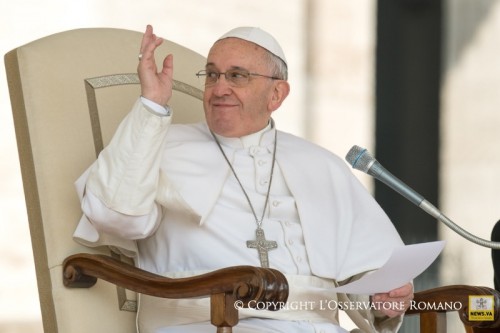
With some surprise, I have just woken up to the fact that we are celebrating two years since the election of Pope Francis, the first Pope from the New World. It is a cliché, but it really does seem just the other day that I – along with everyone else – was waiting for the white smoke to emerge from the chimney on the roof of the Sistine Chapel , having absorbed the shock of Pope Benedict’s decision to step down.
There is a special genius about any ancient institution that has the ability to renew itself in response to the circumstances of the day. The Holy See has managed to do so countless times during its millennial history. And in Jorge Maria Bergoglio, the cardinals in Conclave managed to find the leader to help the Holy See adapt to the challenges of the 21st century. Pope Francis appears comfortable with critical developments like the shift in the balance from the Church of Europe to the Church of the wider world, and the voracious demands of an international media – and globalised public – desperate for authoritative global leadership figures.
They have been two busy years. This is a Pope who has not taken a holiday; who has travelled far more than anyone (perhaps even he) expected – Brazil, Sri Lanka, Philippines, South Korea, Turkey, Israel and Palestine, Jordan, Strasbourg and Sardinia, Assisi and Albania; who has launched the most comprehensive programme of reform and renewal of the Roman Curia since the Second Vatican Council; and who has presided over a new dynamic in Holy See diplomatic engagement from US-Cuba to climate change. He is listened to by non-Catholics as much as Catholics. He has had world leaders queuing up at his door.
And yet, like all modern Popes, Pope Francis is also a deeply counter-cultural figure. “Who is Jorge Maria Bergoglio?”, he was asked in his first major interview. “I am a sinner”, was the answer. The cardinal-electors managed to find a leader who would carry the Holy See into the new century. But they also found someone who rejected entirely its worst aspects: individualism, cupidity, indifference. In his embrace of the humility, poverty, spirituality and simplicity of the Saint of Assisi, Pope Francis – the head of the world’s greatest soft power network – helps to remind us why the Holy See, for all its worldly problems, is still with us today.
